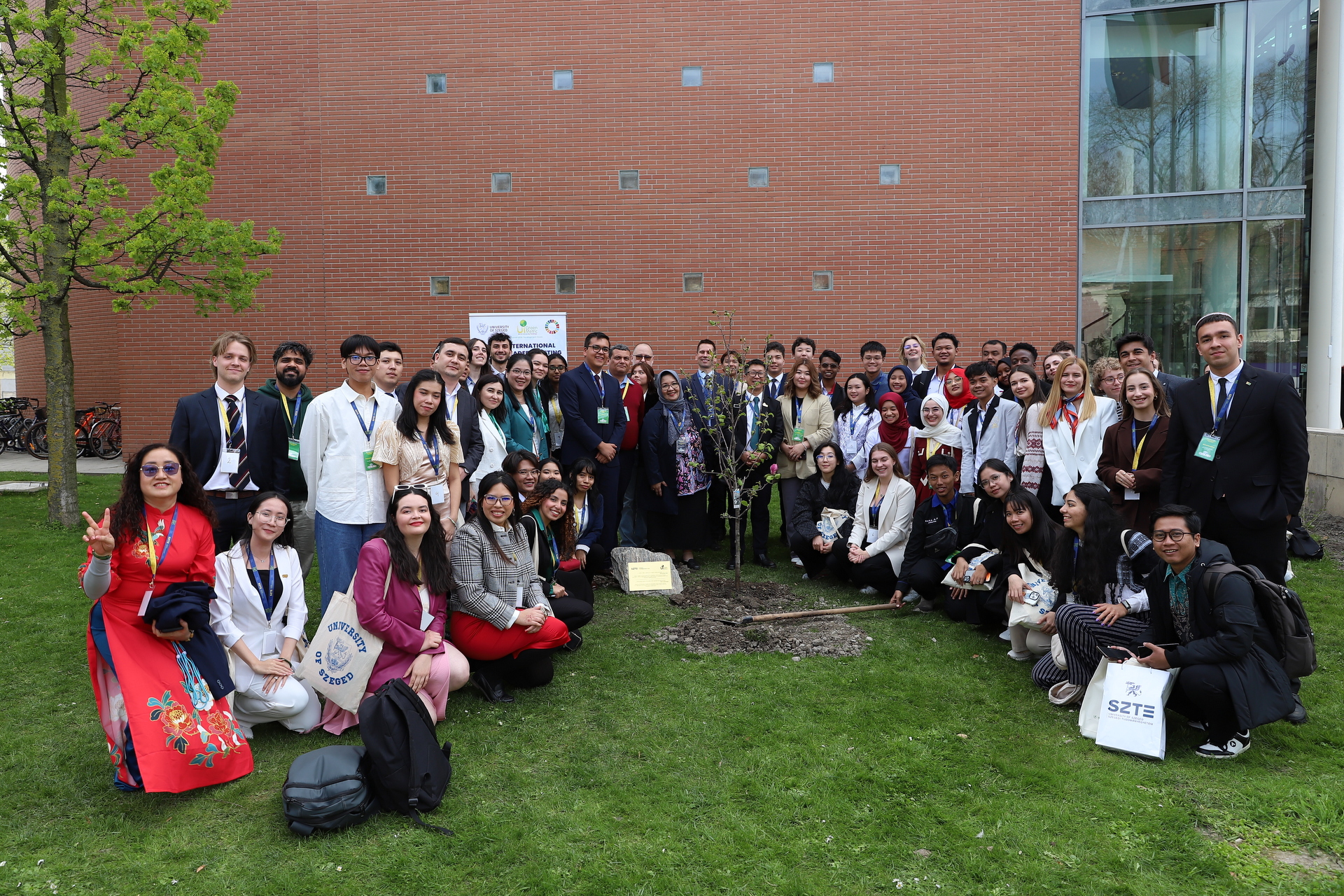
Sustainable development, as defined in the context of the United Nations’ climate action framework, can only be achieved through complex, multidisciplinary programs that actively engage society. In response to this global challenge, the University of Szeged, in collaboration with the UI GreenMetric green university network, hosted the 2025 International Student Leaders Meeting on Sustainability (ISLMS 2025).
For the first time among European universities, the University of Szeged hosted the International Student Leaders Meeting on Sustainability, in collaboration with the UI GreenMetric university network. The ISLMS 2025 event brought together approximately 100 student sustainability leaders, educators, and researchers from 50 universities around the world – from the Philippines, Indonesia, and Malaysia to Turkmenistan, Italy, Egypt, Venezuela, Mexico, and Peru.
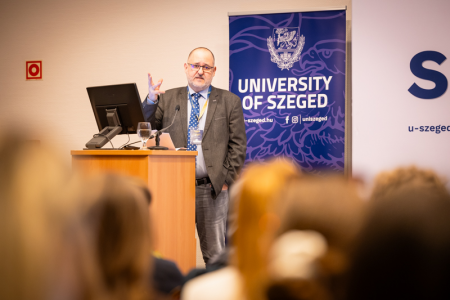 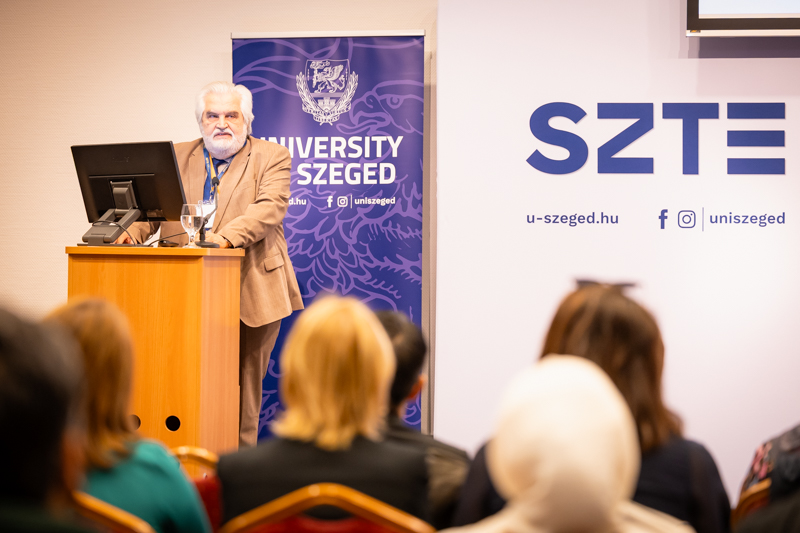 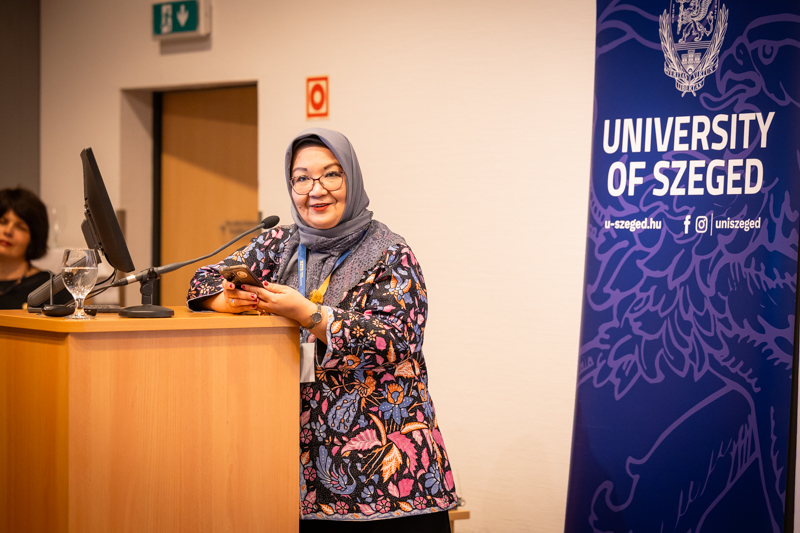  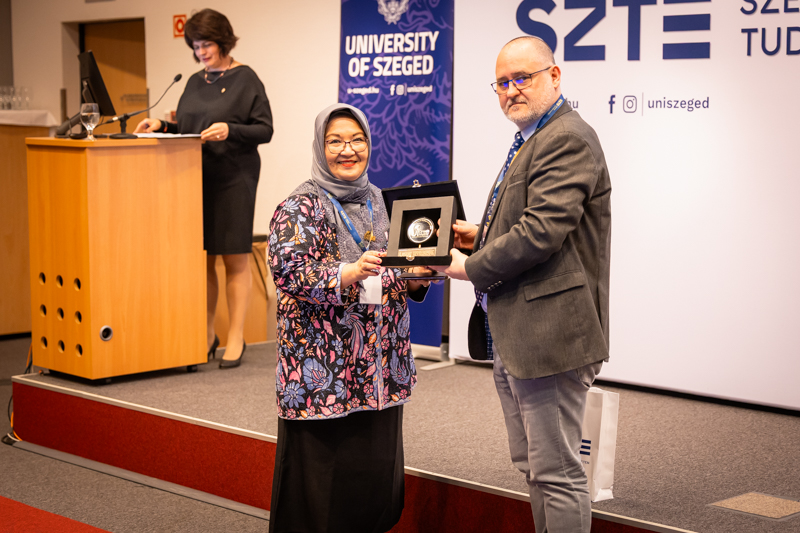   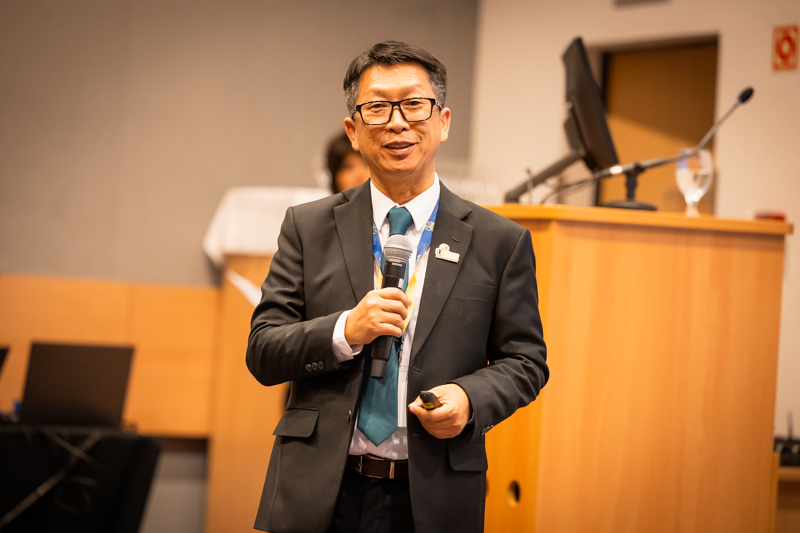 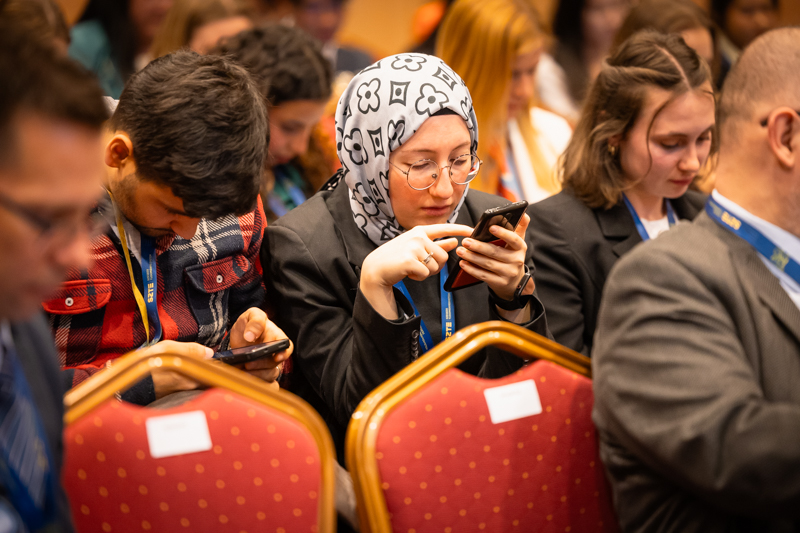 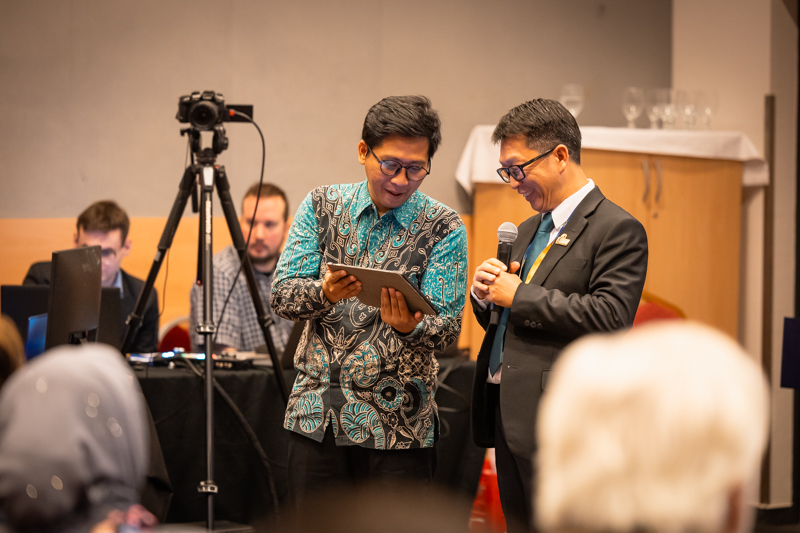 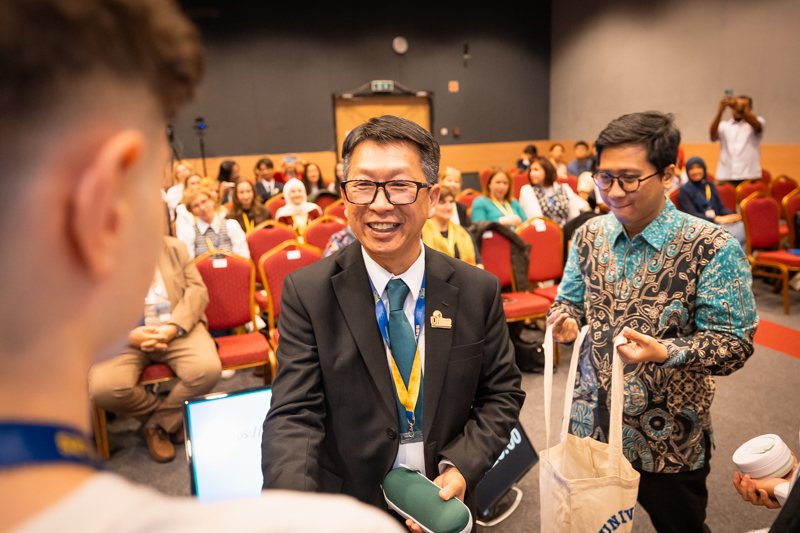 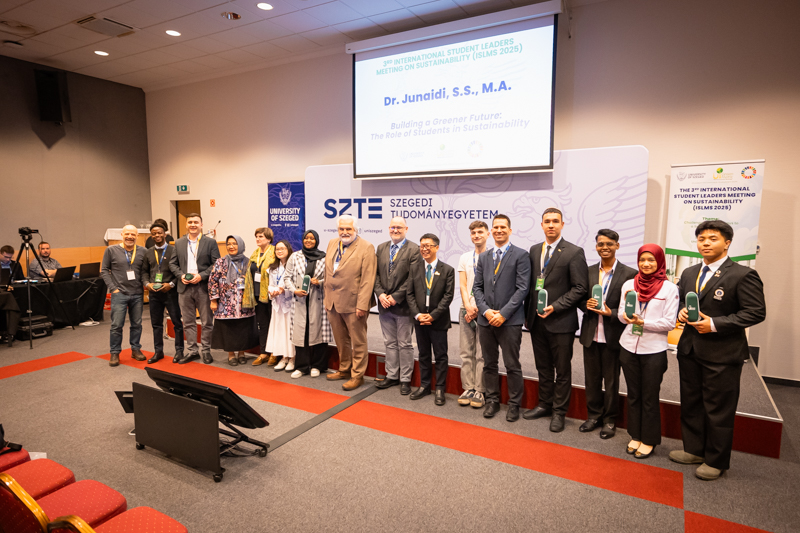  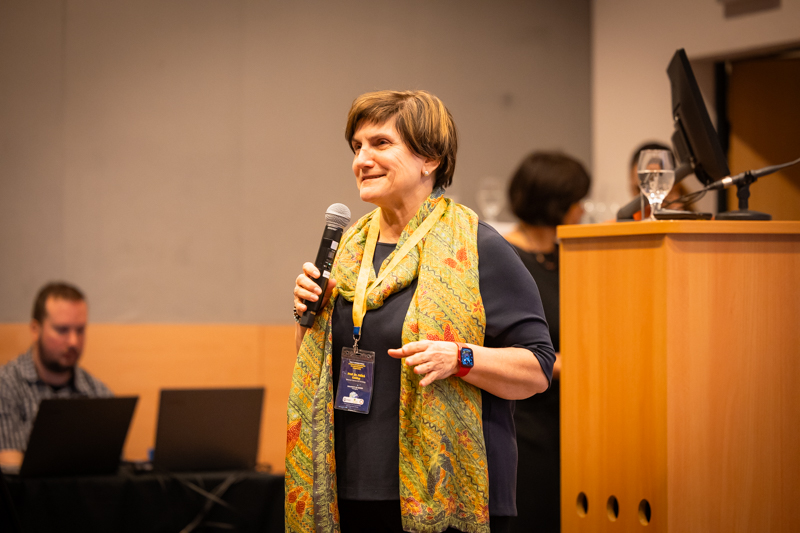 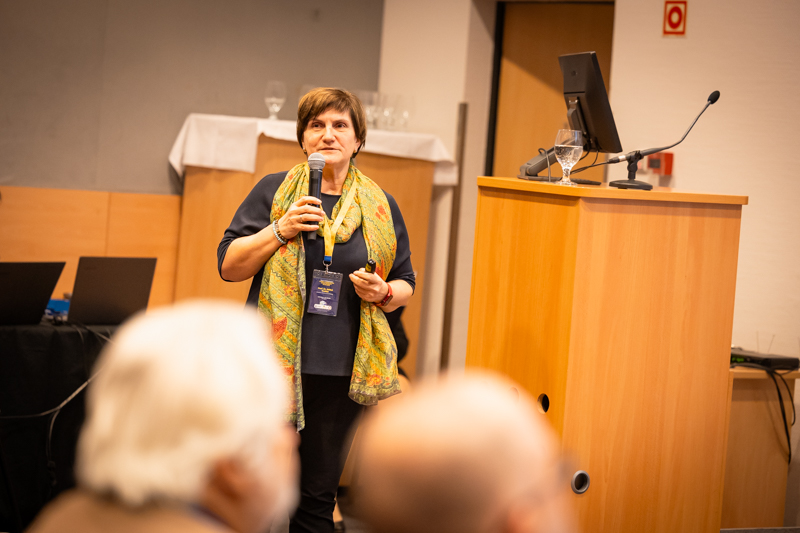 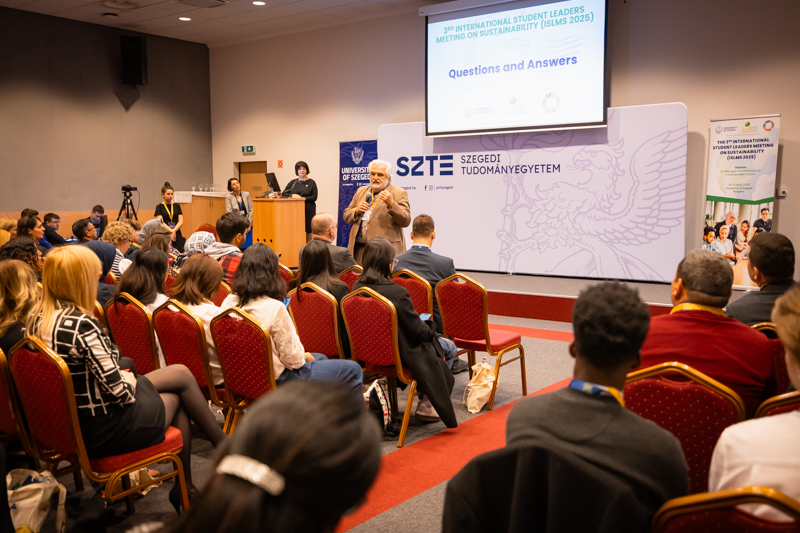 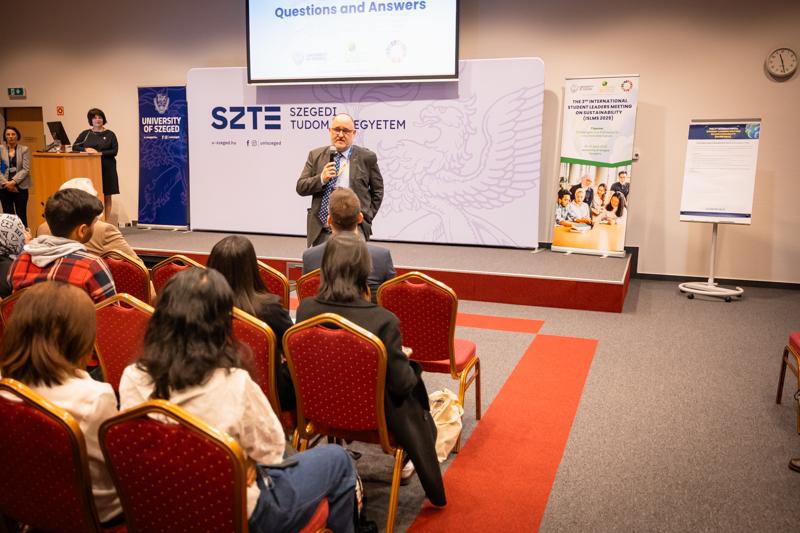 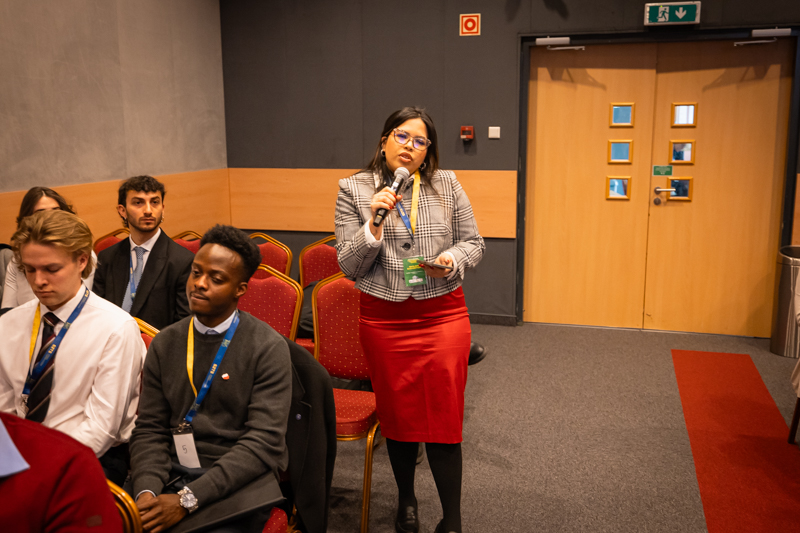 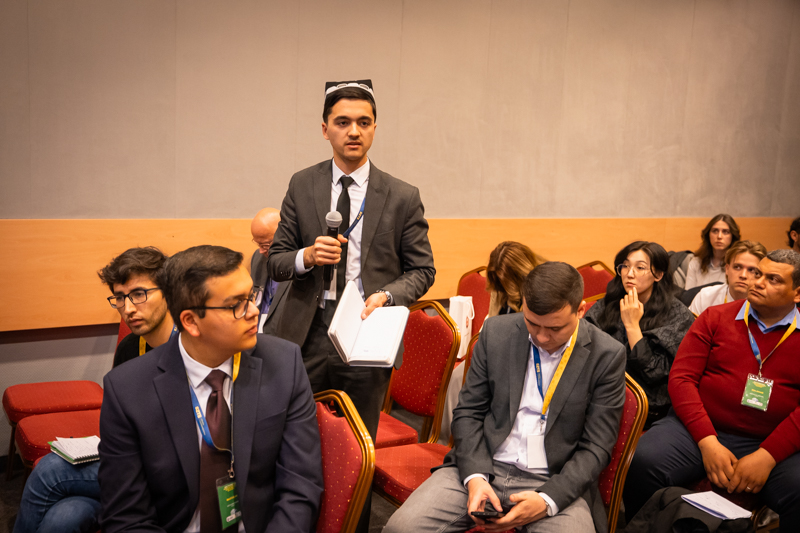  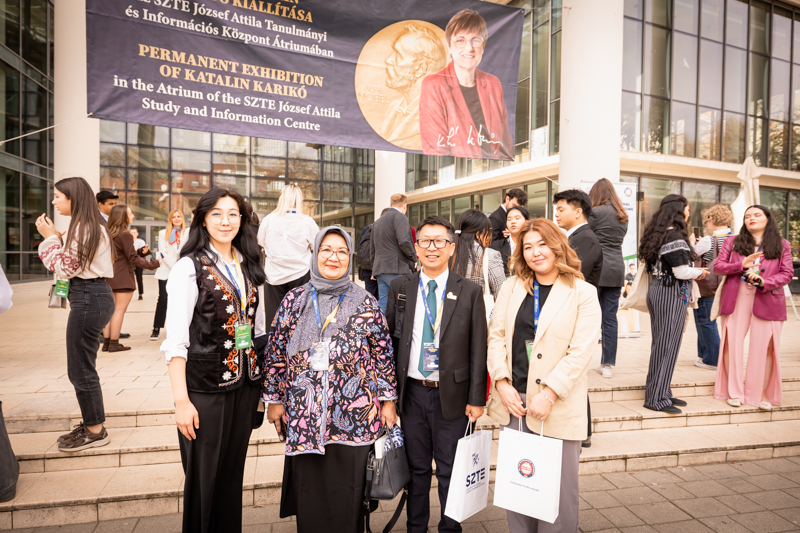 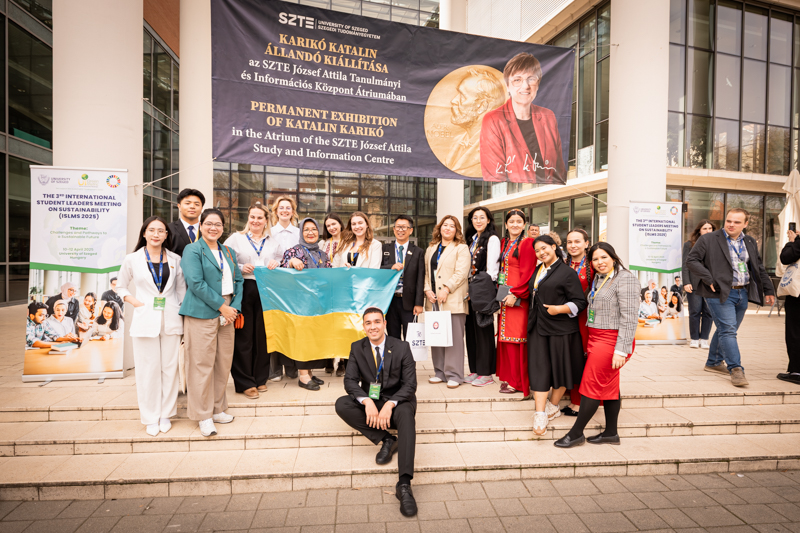 |
| Photo Gallery: International Student Leaders Meeting on Sustainability (ISLMS 2025) Photos by Ádám Kovács-Jerney |
The English-language conference was opened by Prof. Dr. Zoltán Kónya, vice-rector for scientific affairs and innovation at the University of Szeged; Prof. Dr. Gábor Szabó, former rector of the university and chairman of the board of trustees of the Foundation for the University of Szeged; and Prof. Dr. Ir. Riri Fitri Sari, chair of the UI GreenMetric organization.
The speakers at the meeting agreed that the challenges of sustainable development and climate protection require scientific solutions – particularly those that are interdisciplinary and grounded in cross-disciplinary collaboration. Several also emphasized the importance of leading by example. As Prof. Dr. Gábor Szabó noted, the example set by educators is a key factor in teaching sustainability effectively.
One of the opening keynote talks was delivered by Dr. Csaba Janáky, head of professional affairs at the Competence Centre of Material, Environmental and Energy Studies – part of the Centre of Excellence for Interdisciplinary Research, Development and Innovation (SZTE IKIKK) – and of the National Laboratory for Renewable Energies. His presentation highlighted the tangible potential of renewable energy to reduce emissions, which is attributed to its low carbon footprint. In fact, 25% of the energy produced in Hungary now comes from solar power, positioning the country as a global leader in 2024. However, because energy production and consumption don’t always align in time, new technologies are needed for energy conversion and storage. In this context, Dr. Janáky and his research group at the University of Szeged’s Energy Innovation Test Station are developing and testing commercially viable technologies that convert solar energy into green hydrogen and synthetic fuels.
On another note, Dr. Junaidi, vice chair of UI GreenMetric, spoke about the role of university students in advancing sustainability. He emphasized the importance of continuously expanding and deepening sustainability-related knowledge, actively involving young people in the implementation and promotion of sustainable practices and fostering committed participation both on university campuses and within local communities.
Prof. Dr. Ildikó Csóka, strategic director of the University of Szeged and head of operations at SZTE IKIKK, outlined how sustainability has become an integral part of the university’s organizational culture in recent years, with SZTE’s vision built around four core pillars: education, research, healthcare, and what is referred to as the “third mission” – social responsibility.
According to Prof. Dr. Csóka, the university has identified three main goals in relation to sustainability: fostering partnerships as a foundation for collaboration with the surrounding economic and social ecosystems; raising institutional awareness to strengthen a culture of sustainability; and enhancing adaptability to ensure resilience in the face of crises.
“Each year, we assess how the activities of the University of Szeged align with the United Nations’ Sustainable Development Goals,” said the strategic director, who also serves as head of professional affairs at the Cluster of Third Mission Developments within IKIKK.
In the afternoon, the first panel discussion of the conference featured five researchers from the University of Szeged, each sharing their views on the sustainability challenges specific to their fields. Moderated by Dr. Dénes Mátyás, deputy director for sustainability at SZTE’s Directorate for Strategy Management, the discussion included contributions from Dr. József Maléth, medical scientist; Dr. István Sisák, precision agriculture specialist; Prof. Dr. Zoltán Bajmócy, ecological economist; Dr. Csaba Janáky, electrochemistry researcher; and Dr. Tamás Gál, climatologist.
The conference also featured a dedicated panel discussion on the sustainability efforts of Hungarian higher education institutions, as well as the challenges these institutions face. Panelists included: Dr. Katalin Ásványi, dean for sustainability and associate professor at Corvinus University of Budapest; Dr. Levente Horváth, head of the Office for Sustainability and Equal Opportunities at Budapest Business University; Brigitta Molnár-Ferenczik, director of the Sustainability Competence Center at the University of Pannonia; and Dr. Zsuzsa Piskóti-Kovács, head of the Coal Commission Secretariat at Eszterházy Károly Catholic University. Each shared insights into their institution’s strategies for integrating sustainability into academic and administrative frameworks, reflecting on both what has been achieved and what still needs attention.
To mark the occasion, participants of the International Student Leaders Meeting on Sustainability planted a magnolia sapling in front of the József Attila Study and Information Center at the University of Szeged. A commemorative plaque placed beside the tree features a quote from Nobel laureate and former rector Albert Szent-Györgyi, taken from his speech at the Nobel Banquet in Stockholm – a message that resonates deeply with the values of sustainability: “… to the ultimate victory of knowledge, peace, good-will and understanding.”
The joint mission of the University of Szeged and UI GreenMetric highlights the vital role young people play in achieving the Sustainable Development Goals on a global scale. Reflecting this commitment, students from various countries participated in small-group afternoon workshops, where they exchanged ideas and shared experiences on addressing sustainability challenges.
To close the day, participants of ISLMS 2025 had the opportunity to visit the permanent exhibition Katalin Karikó’s Journey to the Nobel Prize and Beyond at the University of Szeged’s Klebelsberg Library. The exhibition, which showcases the life and groundbreaking scientific achievements of SZTE professor and Nobel laureate Katalin Karikó, made a strong impression on attendees – including the Chair of UI GreenMetric, who even composed a poem in her honor titled The Flame of Karikó.
On the final day of the international meeting, guests visited the Botanical Garden and the ELI-ALPS Laser Research Institute and also took part in a behind-the-scenes boiler room tour at the József Attila Study and Information Center.
The event was supported by the Green SZTE Program, part of the Cluster for Third Mission Developments within the Centre of Excellence for Interdisciplinary Research, Development and Innovation at the University of Szeged.
Source: SZTEInfo
Feature photo: Participants of the International Student Leaders Meeting on Sustainability (ISLMS 2025) planted a tree in front of the SZTE József Attila Study and Information Center.
Photo by Anna Bobkó

